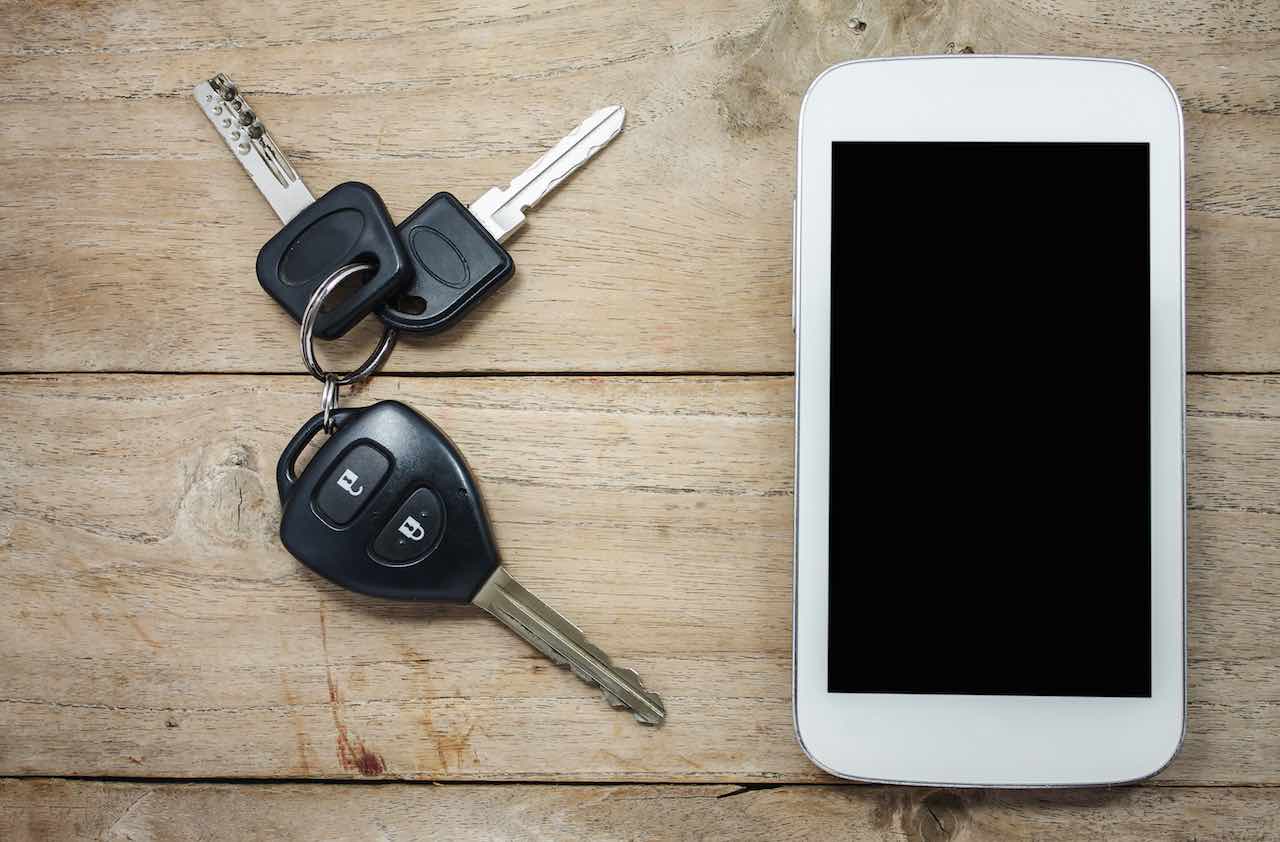New Tech Tools to Keep You From Losing Your Keys, Wallet, More
New devices and apps let you track down misplaced items before the trail goes cold.


Profit and prosper with the best of Kiplinger's advice on investing, taxes, retirement, personal finance and much more. Delivered daily. Enter your email in the box and click Sign Me Up.
You are now subscribed
Your newsletter sign-up was successful
Want to add more newsletters?

Delivered daily
Kiplinger Today
Profit and prosper with the best of Kiplinger's advice on investing, taxes, retirement, personal finance and much more delivered daily. Smart money moves start here.

Sent five days a week
Kiplinger A Step Ahead
Get practical help to make better financial decisions in your everyday life, from spending to savings on top deals.

Delivered daily
Kiplinger Closing Bell
Get today's biggest financial and investing headlines delivered to your inbox every day the U.S. stock market is open.

Sent twice a week
Kiplinger Adviser Intel
Financial pros across the country share best practices and fresh tactics to preserve and grow your wealth.

Delivered weekly
Kiplinger Tax Tips
Trim your federal and state tax bills with practical tax-planning and tax-cutting strategies.

Sent twice a week
Kiplinger Retirement Tips
Your twice-a-week guide to planning and enjoying a financially secure and richly rewarding retirement

Sent bimonthly.
Kiplinger Adviser Angle
Insights for advisers, wealth managers and other financial professionals.

Sent twice a week
Kiplinger Investing Weekly
Your twice-a-week roundup of promising stocks, funds, companies and industries you should consider, ones you should avoid, and why.

Sent weekly for six weeks
Kiplinger Invest for Retirement
Your step-by-step six-part series on how to invest for retirement, from devising a successful strategy to exactly which investments to choose.
No matter how organized you are, there are days you’d lose your head if it weren’t attached. But a growing number of helpful devices can save you the trouble of retracing your steps to locate your misplaced keys or wallet. And unlike friends and family who aid in the search, these solutions won’t laugh if the keys were in your pocket all along.
Tag, you’re it. To pin down items that seem to wander away, including keys, glasses, a purse, and even a laptop or tablet, you can tag them with a Bluetooth tracker, such as Tile ($25 per tag) or TrackR Bravo ($30 per tag), that pairs with a smartphone app—assuming you can find your phone (read on for more information on that). Tile’s 1.5-inch plastic square and TrackR’s 1.2-inch round plastic disc can easily attach to or slip inside items that you want to track.
When a tagged item proves elusive, launch the app on your phone to see how far you are from the item or its last known location on a map. If you’re within 100 feet, you can make the tracking device ring so you can follow the sound. If you lose your phone, both Tile and TrackR work in reverse, allowing you to press a button on the device to make your phone ring—as long as your phone is nearby. To help you avoid leaving items behind, TrackR can be set to sound an alarm when there’s too much distance between your phone and the device.
From just $107.88 $24.99 for Kiplinger Personal Finance
Become a smarter, better informed investor. Subscribe from just $107.88 $24.99, plus get up to 4 Special Issues

Sign up for Kiplinger’s Free Newsletters
Profit and prosper with the best of expert advice on investing, taxes, retirement, personal finance and more - straight to your e-mail.
Profit and prosper with the best of expert advice - straight to your e-mail.
Both devices’ batteries last about a year. TrackR’s watch battery is available online and at most grocery and hardware stores for about $3. Tile’s battery cannot be swapped out; you have to buy a new tile for $12 through the company’s replacement program.
For objects that may stray hundreds or even thousands of miles, such as luggage, you might want a more robust tracking device to slip into your bag. TrakDot ($80, including unlimited tracking for one year) and LugLoc ($70, plus $7 per year for five traces) are both palm-size tracking devices that use cellular technology, rather than GPS (GPS may not work well in airport terminals and baggage loading areas). But if your luggage gets stranded in an electronic dead zone, you will have to rely on lower-tech methods to find it. So don’t forget to label your bags with your name and contact information, and double-check to be sure the check-in agent tags your bags with the correct information for your final destination.
Find your phone. You don’t need a tracking device to keep tabs on your smartphone. If you enabled location access services on your phone, you can sign in to your phone’s account from any Web browser to pinpoint the phone’s location. (Apple users who have the Find My iPhone app on the missing device can sign into their account at www.icloud.com; Android users can go to www.android.com/devicemanager; and Windows users can visit http://account.microsoft.com/devices.)
You can make your phone ring loudly (even if it’s set to silent) and, if it’s within earshot, you can follow the sound to its hiding place. If it is farther away and it’s still on, you’ll be able to see where it is on a map. Apple users can set a message that will appear on the lock screen with instructions on how to contact you. If you suspect the phone is stolen or could fall into the wrong hands, you can erase your data remotely.
Profit and prosper with the best of Kiplinger's advice on investing, taxes, retirement, personal finance and much more. Delivered daily. Enter your email in the box and click Sign Me Up.

-
 Dow Adds 1,206 Points to Top 50,000: Stock Market Today
Dow Adds 1,206 Points to Top 50,000: Stock Market TodayThe S&P 500 and Nasdaq also had strong finishes to a volatile week, with beaten-down tech stocks outperforming.
-
 Ask the Tax Editor: Federal Income Tax Deductions
Ask the Tax Editor: Federal Income Tax DeductionsAsk the Editor In this week's Ask the Editor Q&A, Joy Taylor answers questions on federal income tax deductions
-
 States With No-Fault Car Insurance Laws (and How No-Fault Car Insurance Works)
States With No-Fault Car Insurance Laws (and How No-Fault Car Insurance Works)A breakdown of the confusing rules around no-fault car insurance in every state where it exists.
-
 9 Types of Insurance You Probably Don't Need
9 Types of Insurance You Probably Don't NeedFinancial Planning If you're paying for these types of insurance, you may be wasting your money. Here's what you need to know.
-
 When Tech is Too Much
When Tech is Too MuchOur Kiplinger Retirement Report editor, David Crook, sounds off on the everyday annoyances of technology.
-
 I Let AI Read Privacy Policies for Me. Here's What I Learned
I Let AI Read Privacy Policies for Me. Here's What I LearnedA reporter uses AI to review privacy policies, in an effort to better protect herself from fraud and scams.
-
 Amazon Resale: Where Amazon Prime Returns Become Your Online Bargains
Amazon Resale: Where Amazon Prime Returns Become Your Online BargainsFeature Amazon Resale products may have some imperfections, but that often leads to wildly discounted prices.
-
 What Is AI? Artificial Intelligence 101
What Is AI? Artificial Intelligence 101Artificial intelligence has sparked huge excitement among investors and businesses, but what exactly does the term mean?
-
 The Best Tech Stocks to Buy
The Best Tech Stocks to BuyTech stocks are the market's engine of growth. But what defines a tech stock? How do you find the best ones to buy? We take a look here.
-
 Roth IRA Contribution Limits for 2026
Roth IRA Contribution Limits for 2026Roth IRAs Roth IRAs allow you to save for retirement with after-tax dollars while you're working, and then withdraw those contributions and earnings tax-free when you retire. Here's a look at 2026 limits and income-based phaseouts.
-
 Four Tips for Renting Out Your Home on Airbnb
Four Tips for Renting Out Your Home on Airbnbreal estate Here's what you should know before listing your home on Airbnb.